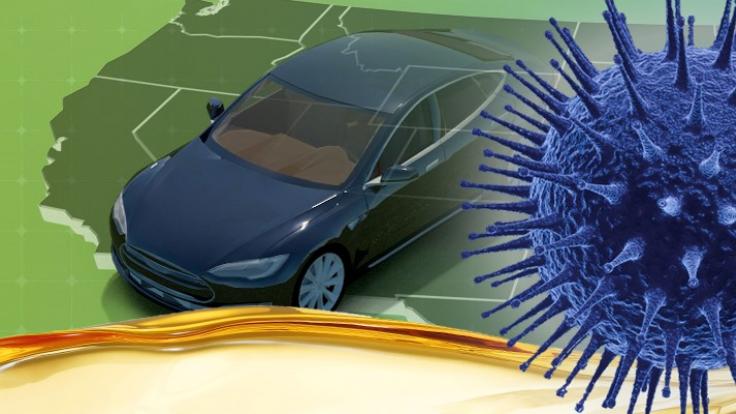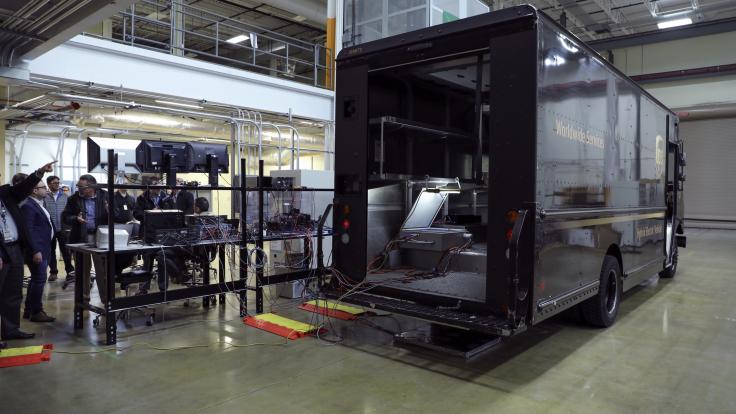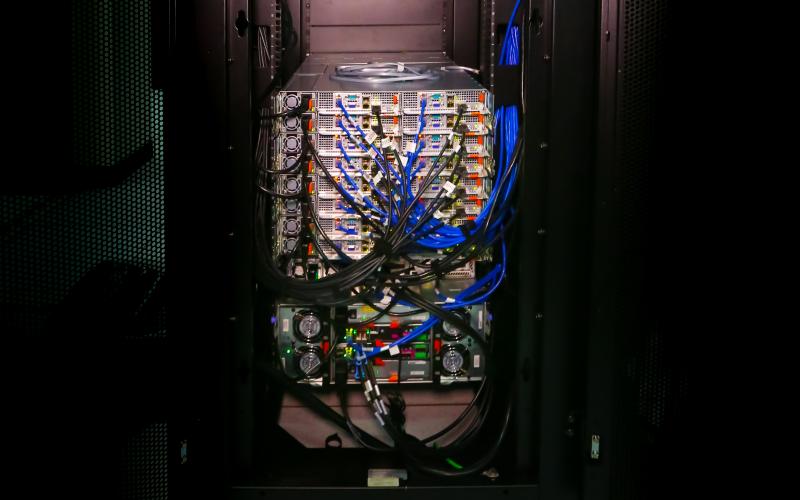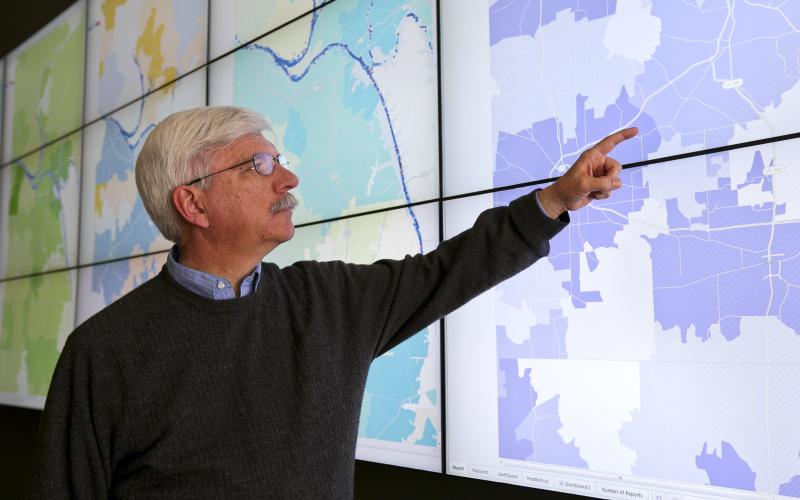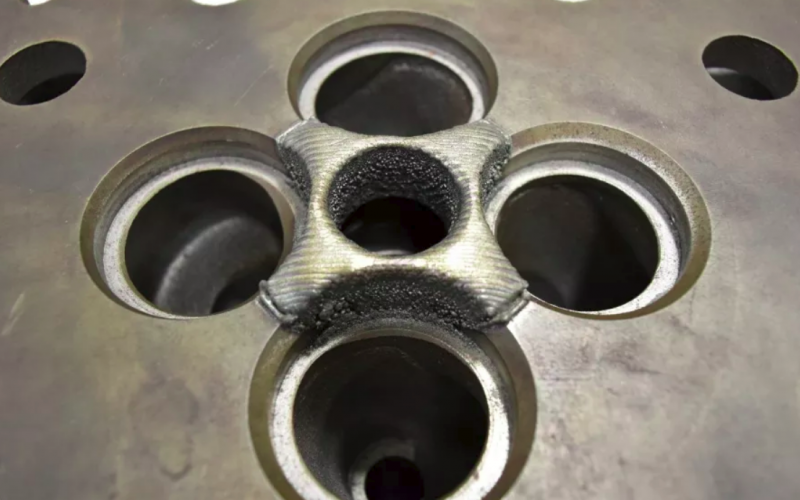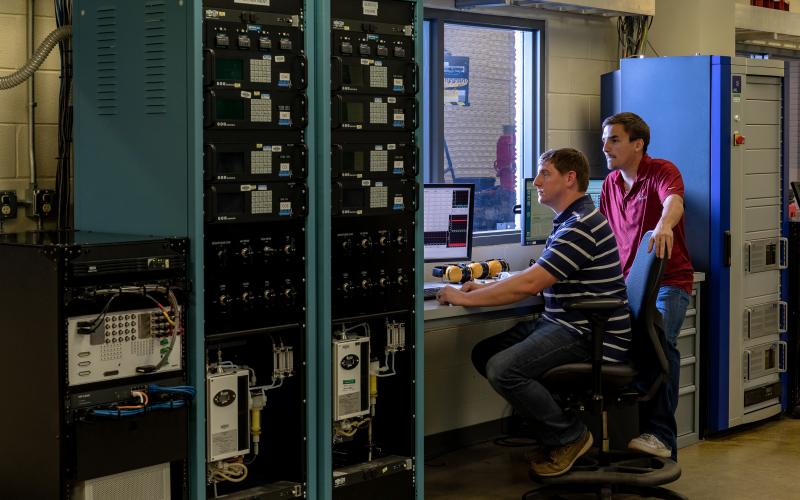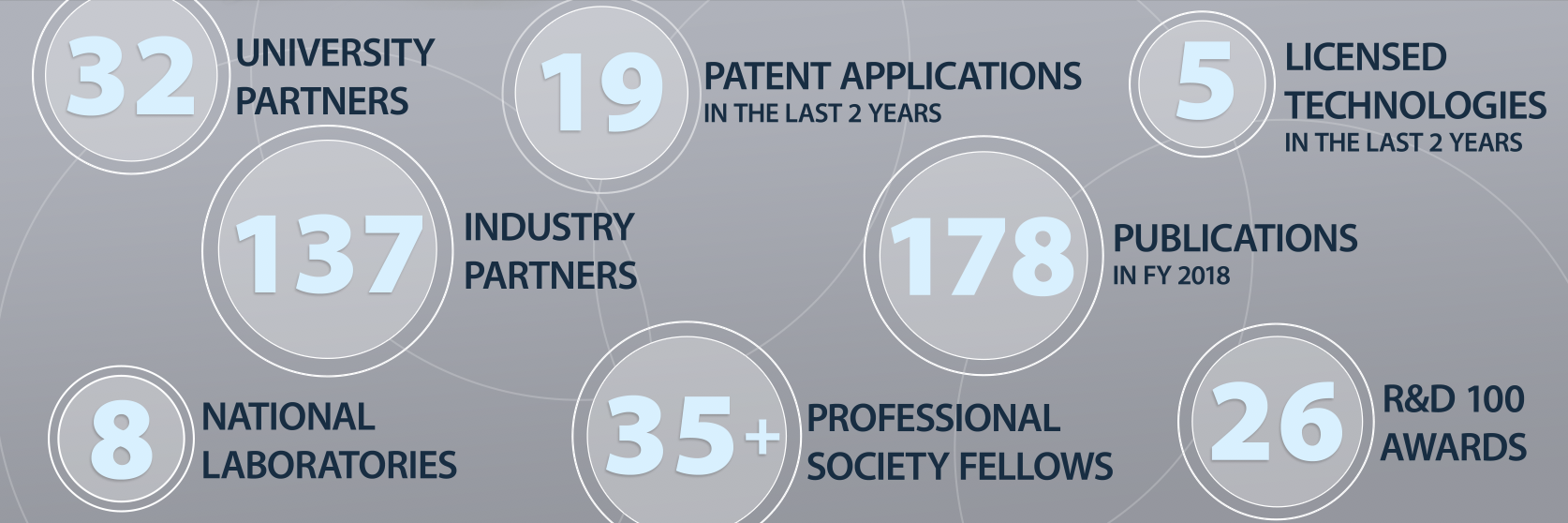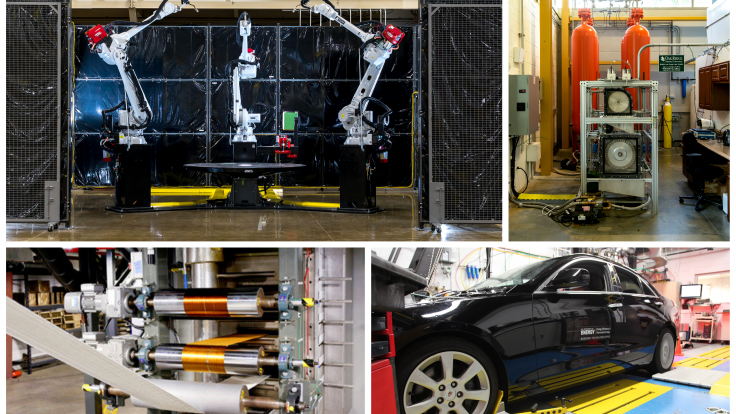
Delivering Innovation
The National Transportation Research Center (NTRC), established in 2000, is the Department of Energy’s only designated user facility focused on performing early-stage research and development in transportation technologies. Research focuses on advanced energy storage and electric drive systems, including fast wired and wireless charging; lightweight materials and multi-material structures for harsh environments; advanced combustion engines and alternative biofuels; data science, analysis, and vehicle cybersecurity; vehicle systems integration; and intelligent mobility systems.
The NTRC comprises a 65,000 sq. ft. facility that integrates a uniquely broad and comprehensive set of capabilities, from novel diagnostics to component and vehicle evaluation to data analytics and cybersecurity. The facility is dedicated to accelerating the pace of research and development for new materials in next-generation systems, providing decision making tools for sustainable transportation systems, and creating economic opportunity by improving the energy efficiency of vehicles to support a robust transportation system for people and commerce.
